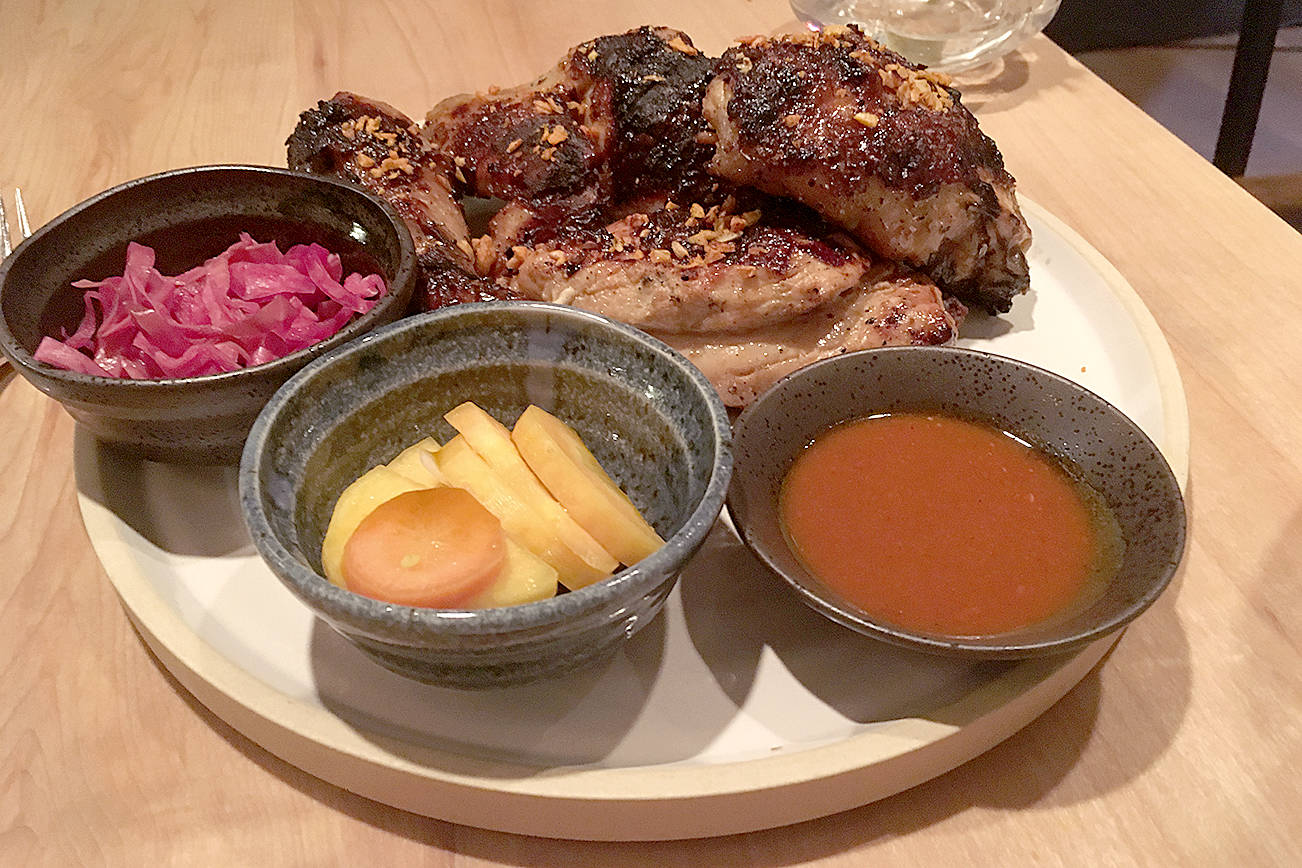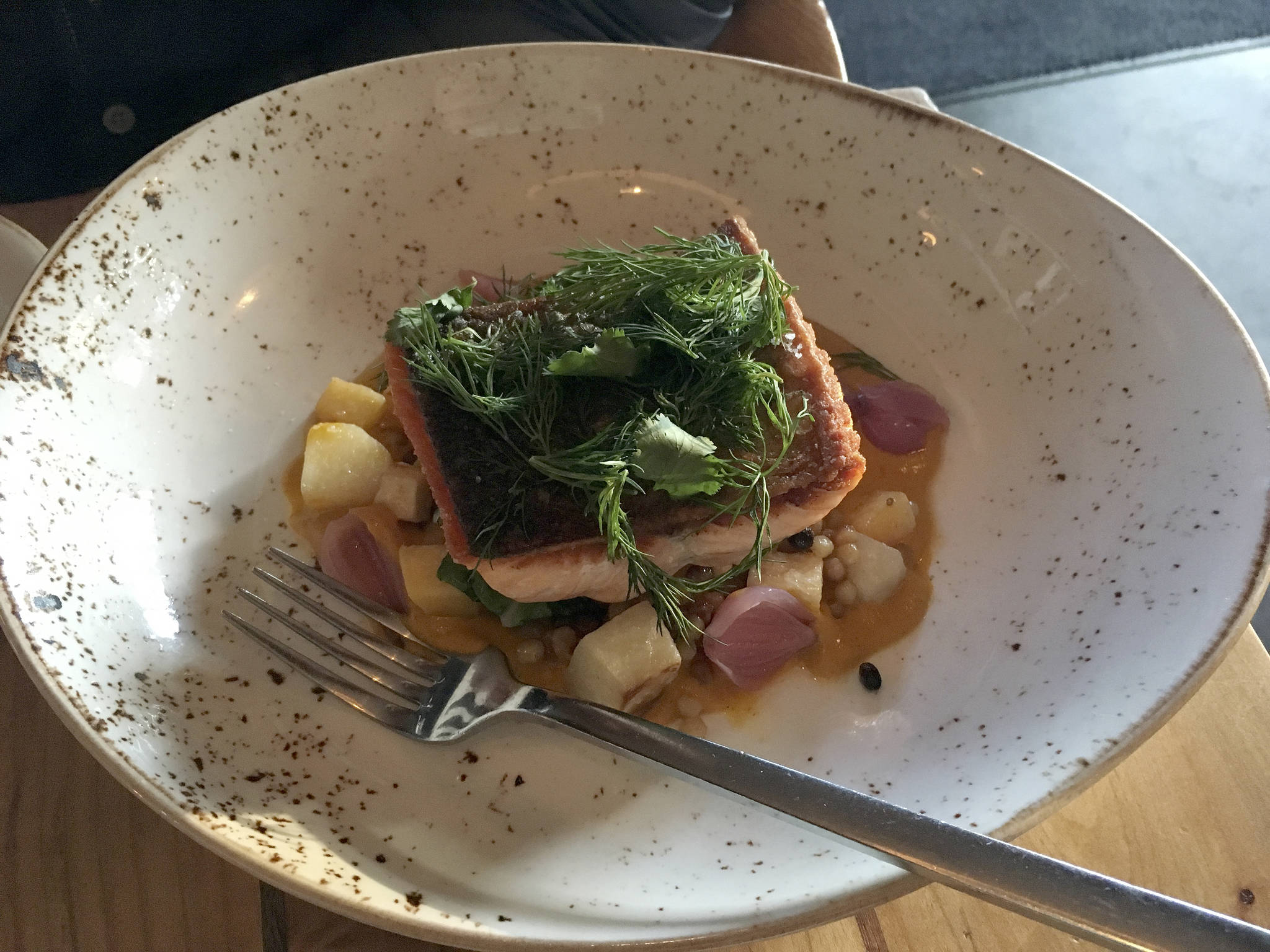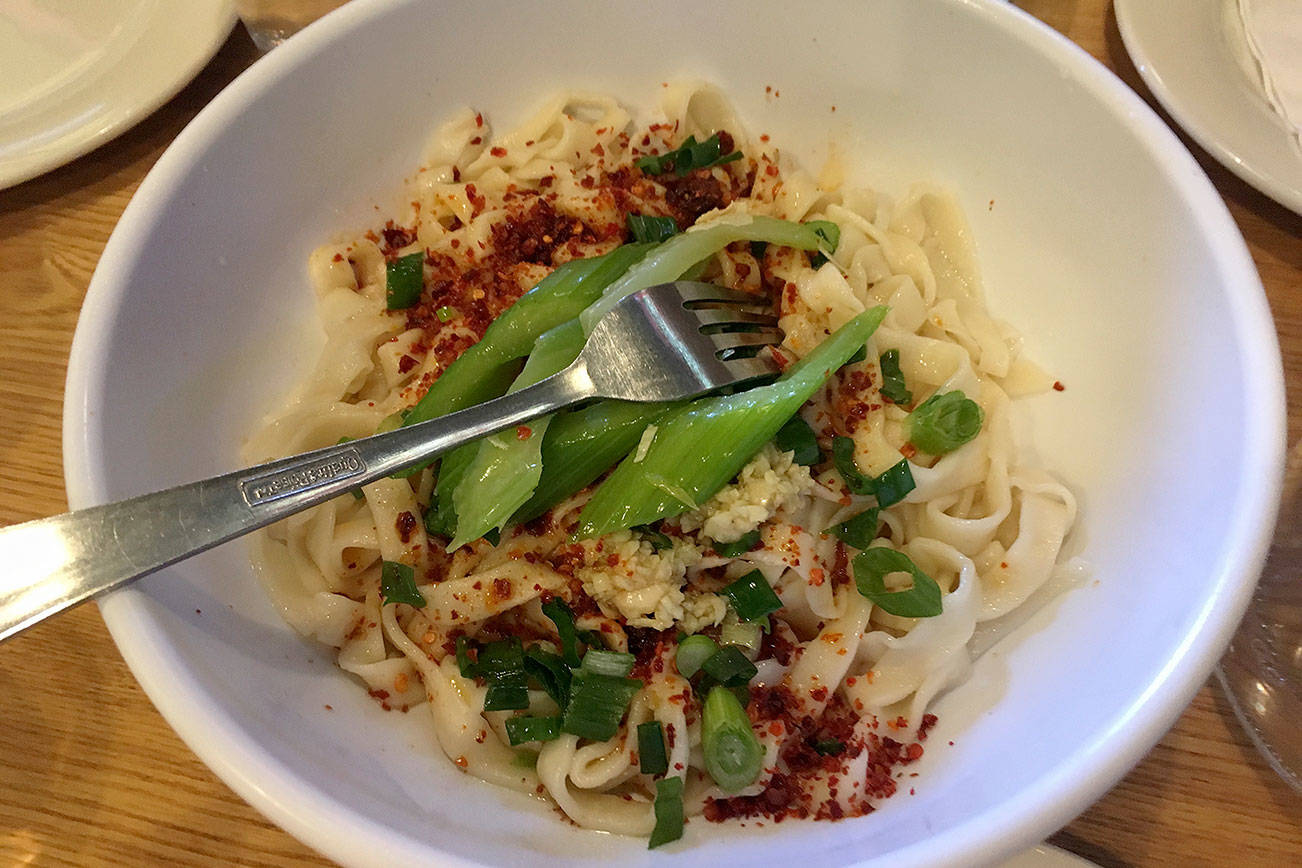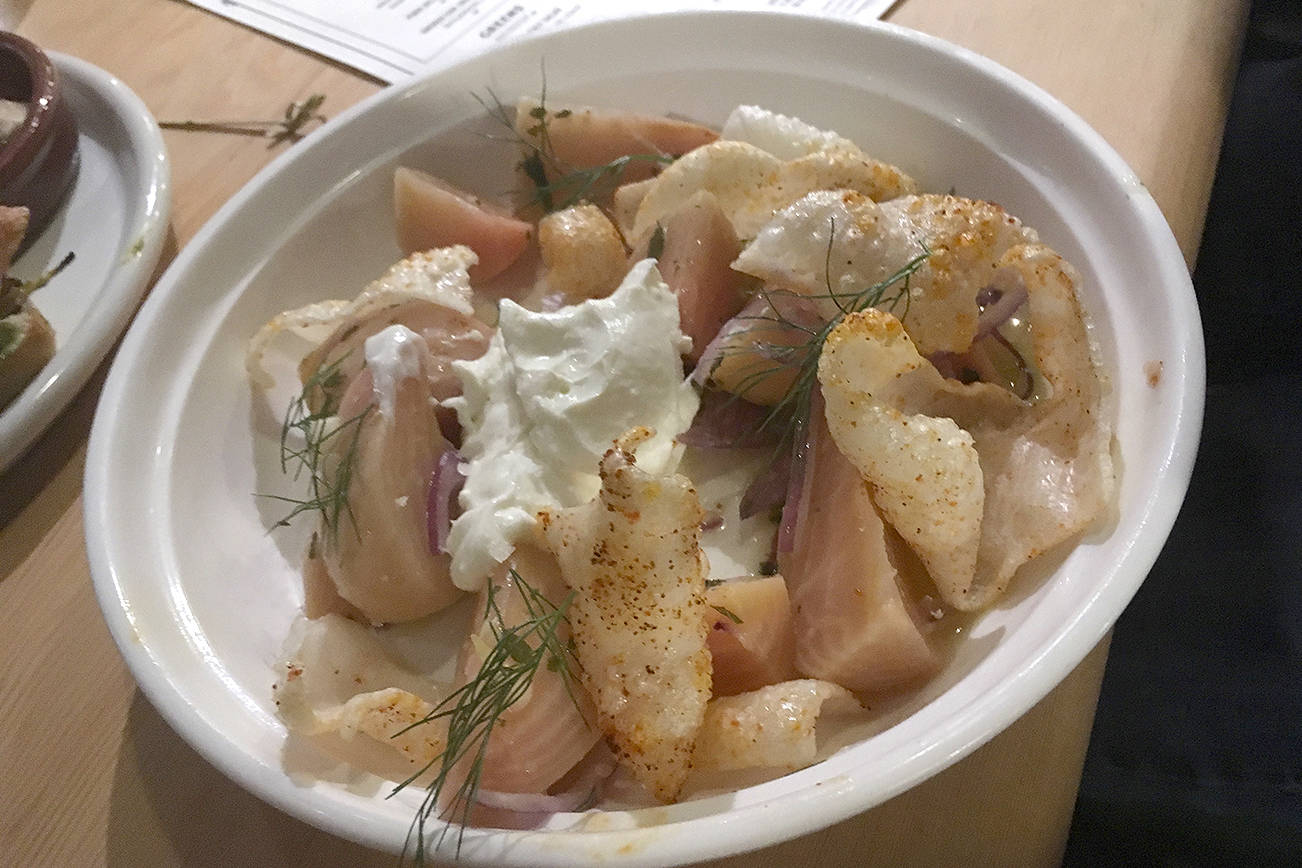Sleepy Phinney Ridge isn’t known as a dining destination. There are restaurants to sustain its residents, but nothing much worth traveling for—until now. Opus Co., a tiny spot with a tiny menu sent a frisson of excitement through the foodie world when it opened last year. Chef Mark Schroder, former chef de cuisine at Trove, cooks everything on a wood-fired grill using ingredients sourced from a short list of Pacific Northwest purveyors, whose names are written on a small chalkboard in the dining area.
Enter the small space and the vibe is immediately inviting: a handful of tables, stacked firewood, jars of pickled items, blonde wood tables and banquettes with orange pillows for your back. It’s so small that the chefs are practically an arm’s length away. The coat rack hanging on the wall is the size you’d have at your own house, and adds to the sense that you’ve just come home for dinner. Service is warm and knowledgeable, if a little chaotic (servers are also hosts and backup help in the kitchen).
What’s unique about Opus Co. is their tasting menu. For $55 a person, you can opt to be left in the chef’s hands for seven courses, which these days is a real steal (all members of your party need to partake however). Otherwise, their tightly curated menu of salads and proteins offer an equitable selection of vegetables and meats, all of which come with the restaurant’s signature pickled ingredients. Everything we tried had something notable on it… but also something slightly off.
The beet salad featured golden orbs lightly dressed in a leek vin, resting upon paper-thin slices of pear. Radicchio leaves injected color and a bite of biter to offset sweet beets. It was sprinkled with jerk-spiced sunflower seeds which brought crunchy fun, but it lacked a real recognition of jerk seasoning on the palette. Crumbled on top, queso fresco felt—and tasted—irrelevant. There’s a reason why this Mexican cheese is typically used on spicy dishes; its cooling properties help quell heat. On this no spice dish, though, it was merely a mouthful of soft, creamy nothing. It didn’t detract from the dish, nor did it add anything. It’s precisely that sort of odd choice that marked much of the Opus Co. experience, and which was unexpected given all of the accolades the restaurant has racked up.
Next out, the fingerling potatoes were one of my favorites, surprisingly. These were larger than average, knotty and misshapen, charred by the oven, and generously coated in a tandoori spice. Little pools of deviled aioli were a bright foil, as was the requisite pickled item—thin slices of celeriac that were sweet and tart like apples. A perfect little dish, the added smattering of steelhead roe seemed more like someone’s desire to get one more thing on the plate, rather than a thoughtfully considered component. But, again, it was easy enough to ignore, and didn’t derail the dish.
Moving on to proteins, the rotating lamb dish, a shank the night we visited, was superb and a great example of wood-firing at its best. The skin, crisped with bonito flakes, clung tenaciously to the meat for just the right amount of moments, and then succumbed to the fork—a dining dance that I always enjoy. It was sweet, as if it’d been treated to a brown sugar rub though, in fact, it was simply the caramelization of the fat as it cooked that imparted the sweetness. It was served with a horseradish and apple crème fraiche and a fermented raisin puree that tasted like a red wine reduction. The pickled accoutrement—bread and butter sunchokes—was plated alongside this time, seemed unnecessary. Once more, one thing to many.
Roasted maitake mushrooms—large and aquatic looking, their juicy stems curling around the plate—set a new standard for mushroom dishes. Their earthiness fully realized from the addition of a black garlic puree. A few pickled leeks were tossed in for good measure, but the chunky Delicata squash fritters weighed the plate down. I loved the idea of them, but that delicate sweetness didn’t come through. The mushrooms could have stood alone.
The half chicken, brined in buttermilk and soy sauce, and then grilled with a malt vin caramel held the most intrigue of any dish, but was also the most disappointing. Though charred nicely, the only real flavor note was that of soy sauce. Given all of its preparation and flavoring layering, it was especially surprising that it was served with a vinegar-based hot sauce, which would seem to overpower everything. It did, but sadly that was a good thing since the chicken was so mild-mannered. The highlight of the dish, besides the hot sauce, was the pickled cabbage slaw with elderberry, the pink-stained kraut alive with the sweet, floral flavor of the berries.
There’s quite a lot to admire here, in particular the chef’s skill with wood-firing meats and veggies. And if you allow yourself to overlook a redundant flourish here and there, and don’t get bored with the pickled shtick, then it’s a sure winner. Go to Opus Co. for a special meal—at a good value, in a charming space—and be encouraged that more good chefs are coming to underserved neighborhoods.
food@seattleweekly.com








